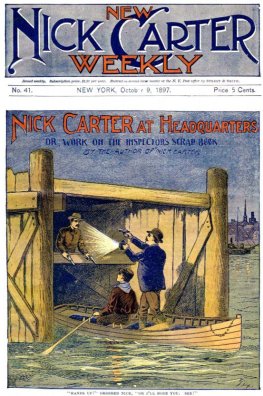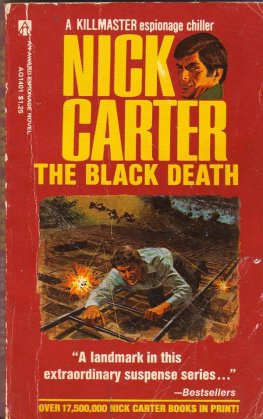I n the harsh winter of 19441945, the long and bitter struggle against Nazi Germany reached a decisive stage. Following early successes in the wake of D day landings in France, in mid-December the Allies were slammed with a massive counteroffensive by German forces. The German assault in the Ardenneswhich would come to be known as the Battle of the Bulgepitted a total of 600,000 Germans against 500,000 American troops. The Americans were stunned and momentarily pushed back, but heavy American bombing weakened the German forces and disrupted their supply lines, enabling the Allies to repulse the Germans and regain the initiative. The battle took a huge toll in U.S. casualties80,000 killed, wounded, or capturedbefore the Allies could turn the tide. As American bombers continued to hammer German military and industrial targets, Allied forces launched a massive drive on the Rhineland. By early March, they were preparing to push into the heart of the Third Reich. To accomplish this they had to cross the Rhine River, the major natural barrier protecting Hitler and his weakened but still dangerous armies. It was a time of fierce battles at Forbach, Freimheim, and other German towns as Allied armies raced to the Rhine. For the first time black soldiers were playing a major combat role in the Allied campaign. Staff Sergeant Edward A. Carter Jr., my father-in-law, was one of the soldiers in the forefront of this fateful assault.
Black American soldiers had not been welcomed into combat. For most of the war they were restricted to racially segregated units, working in service and support roles, such as truck drivers, stevedores, and engineers. But as a result of heavy casualties inflicted in the Battle of the Bulge, Supreme Allied Commander Dwight D. Eisenhower was compelled to find replacements wherever he could, and that included allowing black soldiers to volunteer for combat duty. This was the opportunity many black soldiers had hoped for. Thousands volunteered, and, after hasty combat training, more than 2,000 black soldiers were organized into black combat companies under white officers and attached to larger white units as part of the Rhineland campaign. These fresh reinforcements were critical to the campaigns ultimate success. But to ensure that no black soldier might command whites, black sergeants were required to relinquish their stripes.
Sergeant Carter had enlisted in the Army from his home in Los Angeles in September 1941 and had risen to the rank of staff sergeant in an all-black truck company. Eager to get into the fight, he volunteered daily for combat duty, finally being accepted after the Battle of the Bulge, but at the cost of his sergeants stripes. On the bright morning of March 23, 1945, Sergeant Carter and his black rifle squad were riding on a tank as members of the Fifty-sixth Armored Infantry Battalion with the Twelfth Armored Division in General George S. Pattons Third Army. They were advancing on Speyer, a town of 50,000 inhabitants on the Rhine. The night before, Pattons Fifth Infantry had ferried themselves in small boats across the Rhine near Oppenheim, allowing Patton to boast that he had beat British Field Marshal Bernard Montgomery in the race to be the first to cross the Rhine. Now the objective was to capture the bridge over the river at Speyer.
Speyer was the site of an eleventh-century cathedral where German emperors had been buried for three hundred years. It was also the champagne capital of the Rhine Valley. A row of warehouses and breweries lined the right side of the road as the armored column advanced toward the town. Suddenly, the column was hit by 88mm artillery fire coming from one of the warehouses. Jumping down from the tanks the riflemen quickly deployed to the sides while the tanks dispersed. The officers quickly discussed what to do. Some 150 yards of open field lay between their position and the warehouse from which the shots were fired. Something had to be done to silence the enemy gunners. Armed with a Thompson sub machine gun and a clutch of hand grenades, twenty-eight-year-old Sergeant Carter stepped forward and offered to lead the way with his squad. Of medium height and lean, compact build, Eddie Carter was a handsome man with curly black hair, reddish-brown skin, and high cheekbones. His face was relatively thin, and its dominant feature, a square jaw, was often adorned with a thin mustache. He moved, some said, with the graceful agility of a panther. While the officers set up an observation post, Carter and his three men began to advance across the open field, not realizing that the tanks were not following.
Jerry opened up with everything he had, Carter later recalled. Our small group was cut to pieces. One man was killed almost immediately by intense small-arms fire. Carter ordered the other two back to a protected position from which they could cover him as he advanced alone. But one of these men was killed before reaching cover, and the other was wounded. Exposed and without protective fire, Carter dashed ahead, dodging enemy bullets. Before he could hit the dirt three bullets from a German burp gun pierced his left arm, knocking him down. Lying on the ground looking at his bloody arm and realizing that his squad had been destroyed by the Germans, Carter became boiling mad. The hell that was being loosed by all those Germans convinced me that I only had a few minutes to live, he said. I decided that if I was going to die Id make sure some Jerries would be sent to hell.
Scrambling to his feet with his tommy gun and his string of grenades, Carter charged the machine gun that had wounded him. Tossing a grenade into the German position he permanently silenced the gun. Running hard, he lobbed two more grenades, wiping out a German mortar crew that had been shelling the American lines. Still on his feet, Carter was hit by two more bullets and knocked into the air. Bullets cut into the dirt around him as he hit the ground and crawled behind a low embankment. As he tried to see where the fire was coming from, another bullet tore into his shoulder.
Seriously wounded and in pain, Carter lay still in his sheltered position. He knew he needed to take some of the pain pills he carried. As he raised his canteen to wash down the tablets with some water, another bullet tore through his hand. This really made me mad, he recalled, but there wasnt much I could do.
As I lay there I saw an entire squad of Germans coming toward me in a skirmish line. I opened fire on them with the tommy gun. Got every one of em.
Exhausted by his ordeal, Carter remained still. Time passed. His company officers, watching from their observation post, couldnt tell whether he was alive or dead.
Sergeant Carter began to think he should try to move to another position. Before he could do so he spotted another group of German soldiers advancing on him. He wasnt sure how many there were. But his officers, who were watching from the American lines, saw eight Germans emerge from the warehouse and move toward Carters position. Suddenly Carter popped up and opened fire with his submachine gun. Using three clips of ammunition he brought down all but two of the Germans, who threw up their hands and surrendered.







![Jenny Carter - Fuzzy Logic(2021)[Carter et al][9783030664749]](/uploads/posts/book/265335/thumbs/jenny-carter-fuzzy-logic-2021-carter-et.jpg)






